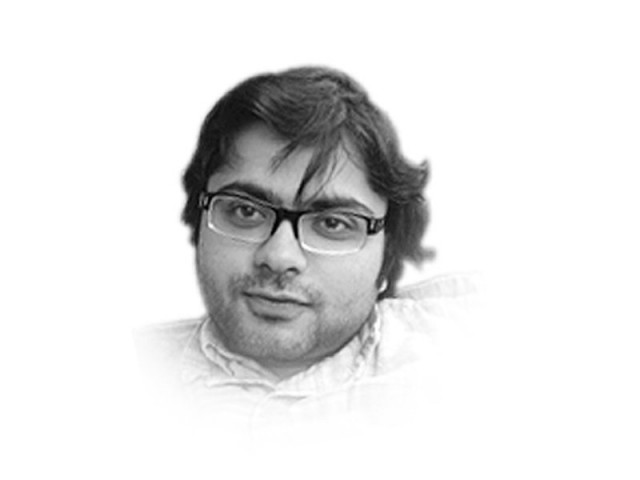Prisoners of divisions
As a collective, we pay for it by accepting death of dreams, possibilities of plural & interwoven loyalties as absurd

The writer has a PhD from Harvard and is a Bengal-based commentator on politics and culture. He tweets @gargac
It must be the shallowness of our imagination and memory that we think it is ‘natural’ that our respective unitary nation states demand that loyalty, longing and love should end at the Radcliffe border with clinical precision. In 1971, a struggle made some of these clean-cut things fuzzy. This was the movement leading up to the independence of the landmass that now calls itself the People’s Republic of Bangladesh. It is true that the Indian Union and many of its peoples were supportive of East Bengal’s struggle for independence. But there was something in the enthusiasm of the Bangladesh solidarity initiatives in West Bengal that didn’t quite fit into the neat India-Bangladesh narrative. West Bengal was ‘closer’ to East Bengal in a way that Mizoram wasn’t. This kind of closeness runs against the grain of nation state narratives emanating from Delhi but in reality, often the least embarrassing reaction to such closeness is to publicly ignore it. Think about how Delhi reacts to resolutions about Eelam Tamils in the Tamil Nadu Assembly. Think about what Kabul or Peshawar think about the Durand Line and Islamabad’s attitude towards that narrative.
I am talking of a bygone moment. This ‘special’ closeness that poured out in West Bengal in 1971 does not exist anymore as West Bengal has also learned to look east through a Delhi lens. This erstwhile special closeness was spontaneous. Delhi knew of this ‘affair’ — something that wasn’t quite infidelity or ‘disloyalty’ but a complicated kind of lopsided polyamory that only unfortunate victims of Partition zones can relate to. It is a love that dare not tell its name in a subcontinent divided into nation states that demand total fidelity and loyalty not only in public but also in realms of fantasy. Gobindo Haldar was one such lover. He died on January 17 in Kolkata aged 84 in a very modest healthcare facility. He was born in Bongaon, Jessore district, Bengal. Jessore was one of districts that were partitioned up to the thana level. Bongaon ‘fell’ in the Indian Union. Gobindo worked in the income tax department but was a lyricist for Akashbani, India’s national public radio broadcaster. Later, when the Swadhin Bangla Betar Kendra (Free Bengal Radio) was set up by the Bangladesh government-in-exile, Gobindo was asked by Kamal Ahmed to write songs for Free Bengal Radio. And he wrote what became words that stirred a people. The most famous songs he wrote include “Mora Ekti Phulke Bachabo Bole Juddho Kori” (We fight to save one flower), “Purbo Digonte Surjo Uthechhe Rokto Lal” (A red sun has risen in the eastern horizon) and “Padma Meghna Jamuna Tomar Amar Thikana” (The land of Padma, Meghna, Jamuna rivers is where you and I belong). The name of the last song comes from a famous political slogan that was posited against the Pakistan-loyalist religious slogan “Tomar Amar Thikana Praner Bhumi Madina” (Beloved land of Madina is where you and I belong). I have a picture of him holding a Bangladesh flag to his chest.
He was from a different universe, representing a different universe of ‘loyalty’. He lived amongst us, in West Bengal, in the Indian Union. And we did not care, because we are prisoners of divisive ‘national’ narratives that make us smaller as humans. How many such people are there? Let us look around. Let us expand and see the many fights for justice all around us for what they are, for Cornel West says that justice is what love looks like in public. Let us salute such lovers and have the humanity to criticise ideologies that deem saluting love as ‘illegal’. Let us learn to listen to the illicit whispers of Gobindo Haldar. One of the many clues to this subcontinent’s salvation may lie there. After all, this fecund land also teaches to love as did Shah Abdul Karim — “Bondhe maya lagaise, piriti shikhaise, dewana banaise, ki jadu koriya bondhe maya lagaise” (My friend has entranced me, has taught me love, has made me diwana, had entranced me by some magic).
Published in The Express Tribune, January 22nd, 2015.
Like Opinion & Editorial on Facebook, follow @ETOpEd on Twitter to receive all updates on all our daily pieces.















COMMENTS
Comments are moderated and generally will be posted if they are on-topic and not abusive.
For more information, please see our Comments FAQ